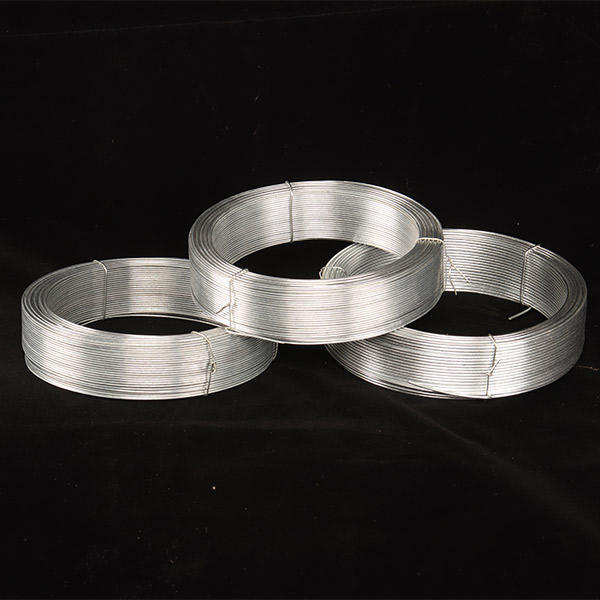Dec . 13, 2024 03:29 Back to list
Specifications and Manufacturers of Black Annealed Wire for Various Applications
Understanding Black Annealed Wire Specifications and Factories
Black annealed wire is a type of wire that has undergone a specific annealing process to enhance its properties and overall performance. Commonly used in various industries, black annealed wire is particularly prevalent in the manufacturing of wire products, fencing, and other applications where strength, flexibility, and resistance to corrosion are crucial. This article aims to explore the specifications of black annealed wire and provide insight into the factories that produce this essential material.
What is Black Annealed Wire?
Black annealed wire is typically made from low carbon steel, which is subjected to a heat treatment known as annealing. This process involves heating the wire to a certain temperature and then cooling it at a controlled rate, which alters its microstructure and improves its mechanical properties. The result is a wire that is softer, more ductile, and easier to work with compared to its non-annealed counterparts.
One of the defining features of black annealed wire is its distinctive dark surface, a result of the manufacturing process. This finish not only provides a unique aesthetic but also offers some level of rust resistance. Black annealed wire is widely used in agriculture (for farm fencing), construction (as binding wire), and other sectors where it is essential to have a reliable and flexible wire that can withstand deformation without breaking.
Specifications of Black Annealed Wire
When discussing black annealed wire, several specifications are crucial for determining suitability for various applications
1. Wire Diameter Black annealed wire is available in various diameters, usually ranging from 0.5mm to 4.0mm. The diameter chosen typically correlates with the intended application.
2. Tensile Strength The tensile strength of black annealed wire can vary but generally falls within the range of 300 to 600 N/mm². This specification is critical as it indicates the wire's ability to withstand stress without failing.
3. Elongation A key attribute of black annealed wire is its elongation rate, often between 15% to 25%, which denotes the wire’s capacity to stretch before it breaks. High elongation values are important in applications requiring bending and twisting.
black annealed wire specification factories

4. Coil Weight Black annealed wire is typically supplied in coils, with common weights ranging from 10kg to 1000kg, allowing for flexibility in order sizes based on project requirements.
5. Finish and Coating While the standard finish is black oxidized, some manufacturers offer additional coatings for enhanced corrosion resistance, including galvanization or PVC coating.
Factories Producing Black Annealed Wire
The production of black annealed wire involves a series of specialized processes that are carried out in factories equipped with modern machinery. Major manufacturing hubs are typically located in industrial regions where the demand for wire products is high.
1. China A leading producer of black annealed wire, several factories in China specialize in the mass production of this material. These factories utilize advanced technologies, including automated machinery, to ensure precise manufacturing processes that adhere to international standards.
2. India Another significant player in the black annealed wire market, India is home to numerous factories that produce various wire products. The competitive pricing and large production capacity make Indian manufacturers notable sources for both domestic and international markets.
3. Europe and North America In these regions, factories often emphasize high-quality production practices, with an increasing focus on sustainable manufacturing processes. Many manufacturers are investing in environmentally friendly technologies and materials to meet regulatory standards and consumer demand for sustainability.
Conclusion
Black annealed wire is a versatile material with a wide range of applications across various industries. Understanding its specifications is crucial for selecting the right wire for specific uses, while the factories that produce it play a significant role in maintaining supply chains and ensuring quality standards. As demand for black annealed wire continues to grow, innovations in manufacturing processes and materials will likely pave the way for new applications and improvements in product performance. Thus, both manufacturers and users should remain informed about the latest trends and specifications in the black annealed wire market.
-
High-Quality Steel Grating Solutions for Industrial Applications | Durable, Safety, Customization
NewsJul.13,2025
-
Advanced Solutions-CompanyX|Enterprise Efficiency&Cost Reduction
NewsJul.13,2025
-
Sustainable Manufacturing-EcoTech Innovations|Waste-to-Energy System&Zero Emissions
NewsJul.13,2025
-
Welded Wire Mesh- Buildings Wiremesh Co., Ltd.|Durable Construction Material&Industrial Strength Solution
NewsJul.13,2025
-
Smart Production Solutions-Example Corp|AI Automation&IoT Monitoring
NewsJul.13,2025
-
Advanced Industrial Solutions-Advanced Industrial Solutions|Manufacturing Efficiency&Productivity
NewsJul.13,2025

